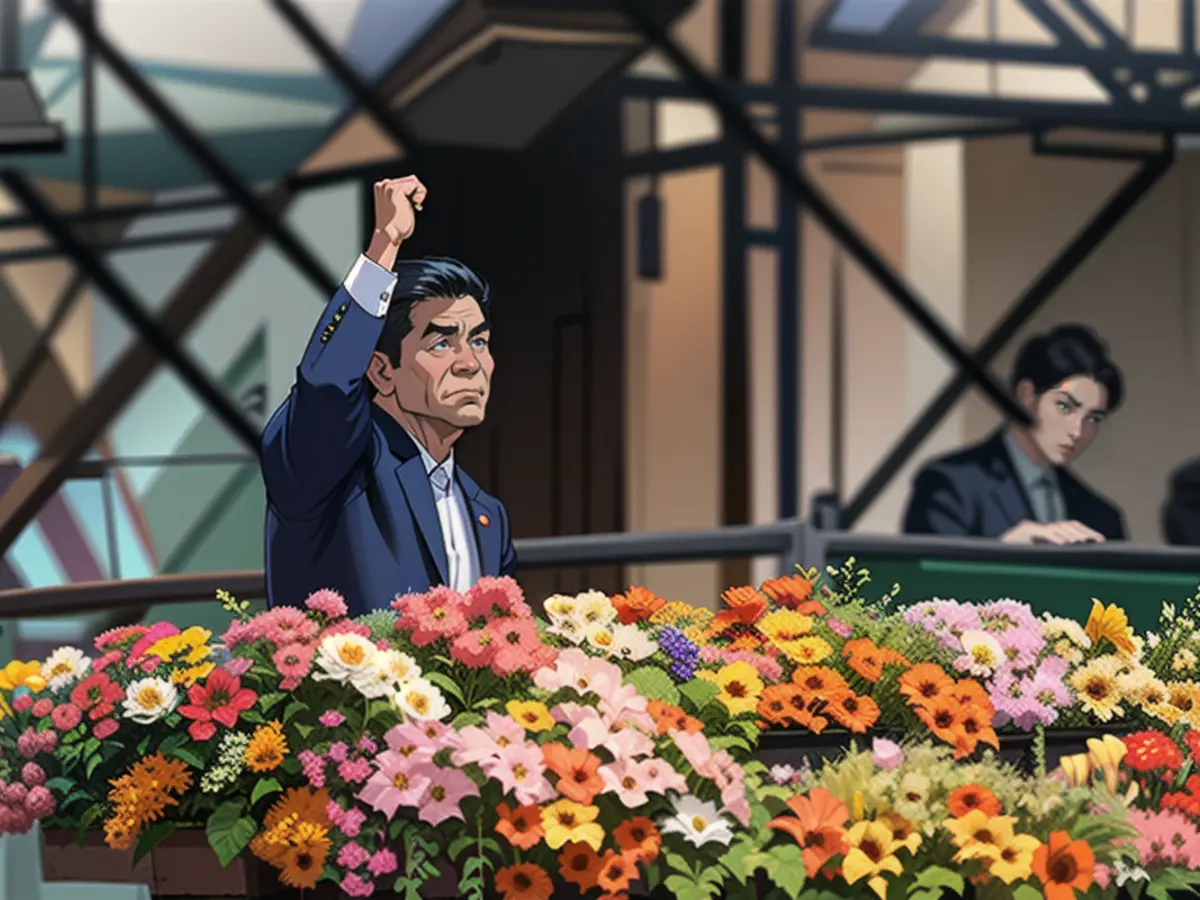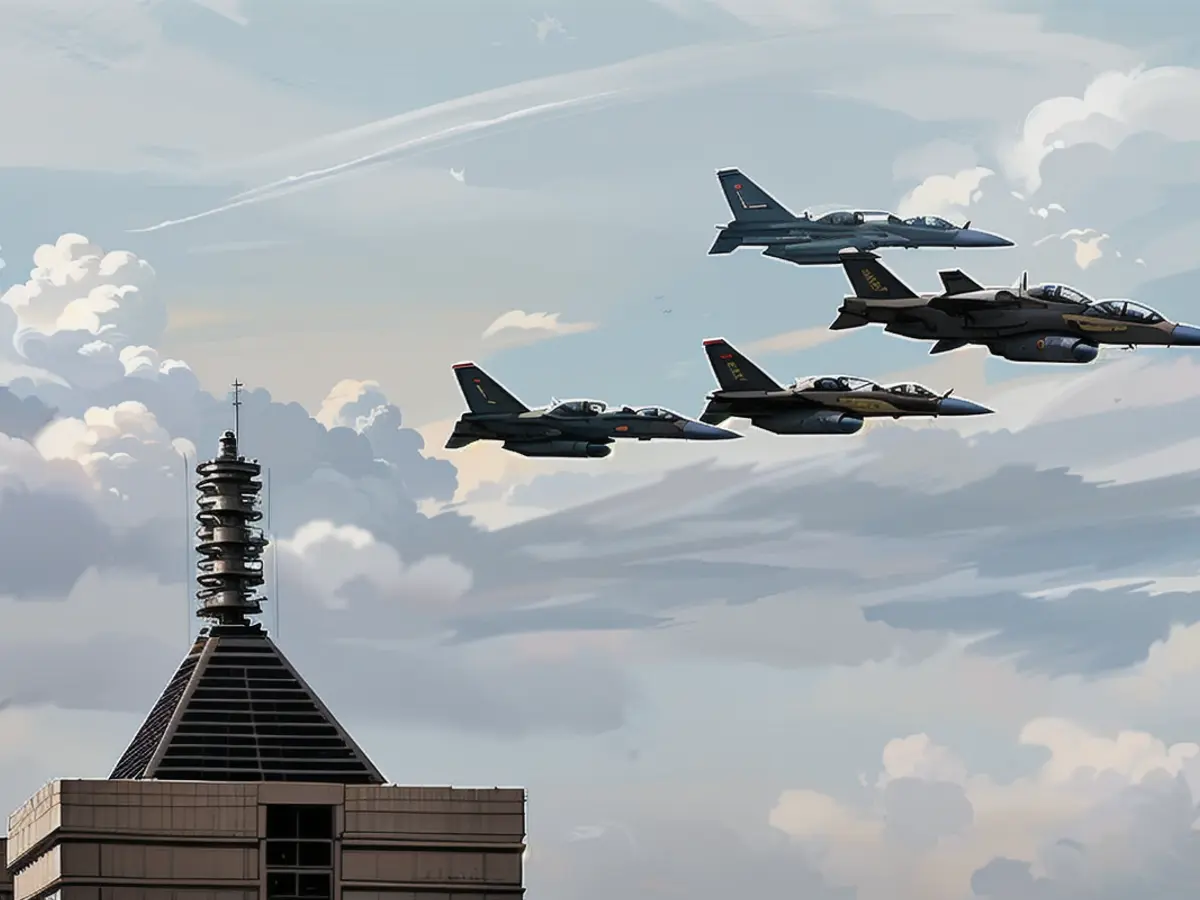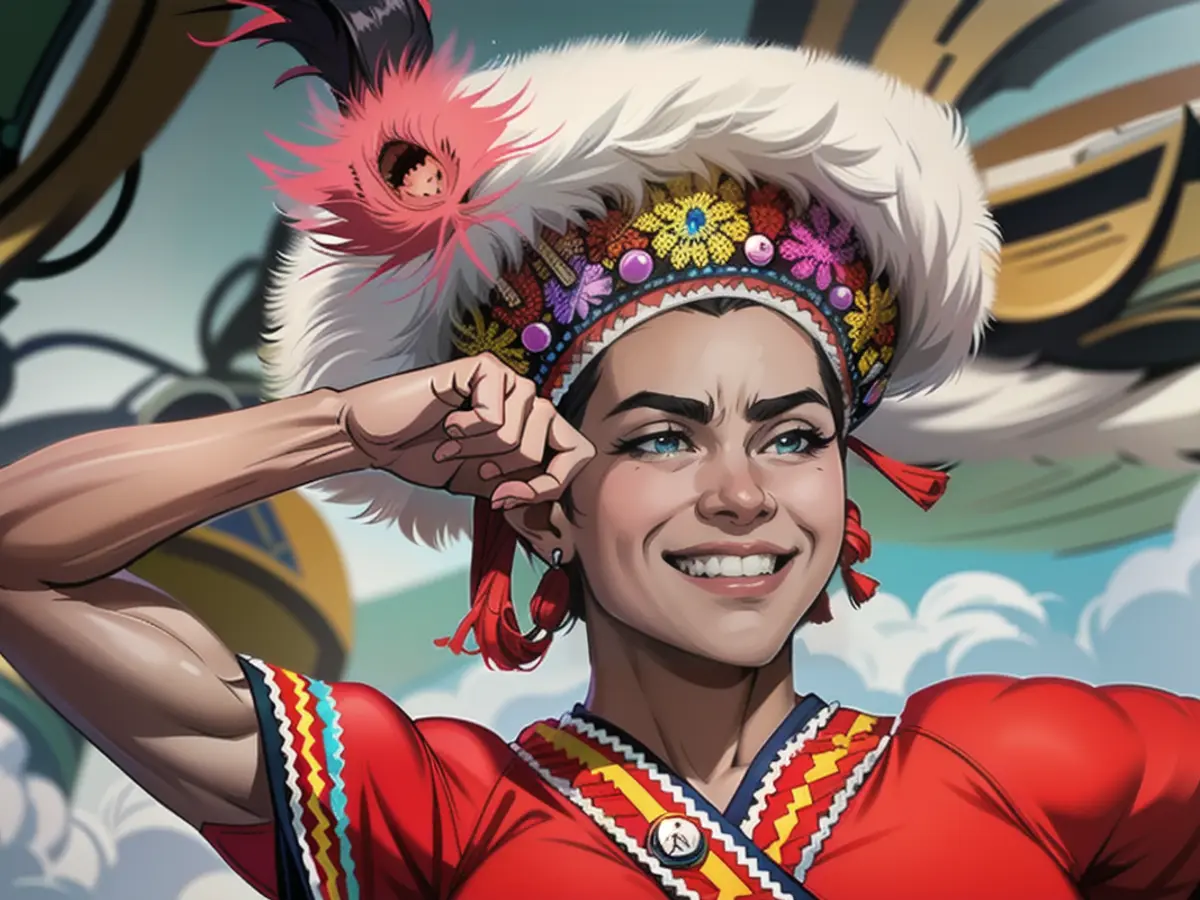Taiwan's latest president displays steadfast opposition to China.
During the inauguration ceremony of Lai Ching-te as Taiwan's president, the island nations presented itself as a free, vibrant, and unfazed country. However, Taiwan's democracy is facing difficulties, not only due to war threats from Beijing.
In his first address as president, Lai Ching-te urged China to stop threatening his nation and engage in diplomatic talks with its democratically elected government. He emphasized the need for peace and stability by ending political and military hostilities. The new leader's bold statements earned him a round of applause in Taipei, the country's capital. Lai, who previously served as Vice President, was elected president in January.
The inauguration ceremony in front of a large audience was a lively, joyous, and deafening affair that featured rappers, acrobats, and dancing mythical creatures. The celebration of democracy, however, was held against the backdrop of earlier warnings from China. The communist leadership labels the Democratic Progressive Party (DPP) politicians, including Lai, as "separatists." After Tsai Ing-wen's election in 2016, Beijing abruptly ended contact with Taiwan's administration - a move they still maintain, but Tsai maintained that she had no intention of altering Taiwan's status and was willing to negotiate. It is likely that Lai aims to continue Tsai's stoic approach, which has helped solidify Taiwan's position in the West by seeking support, even in the face of aggression. Taiwan must ally itself "with other democratic nations" to "achieve peace through strength," he said.
Following his speech, several squadrons of Taiwan's air force flew over the government district, a show of strength by the new president. However, the display also served as a reminder that China is developing plans for air strikes and a possible invasion of the island. If the Chinese military becomes more aggressive, a conflict could erupt over Taiwan that could potentially cause more damage to the global economy than Russia's invasion of Ukraine and even the COVID-19 pandemic.
The potential showdown between China and the United States could occur as Washington is not likely to stand idly by. For decades, the United States has maintained a policy of not allowing any changes to Taiwan's status without the consent of its 23 million inhabitants, even without any official diplomatic relations between the countries. Ex-U.S. Secretary of State Mike Pompeo attended Lai's inauguration, as did a group of German parliamentarians.
"Peace is the only option," Lai remarked, referencing the pervasive tension in the room. Beijing ought to accept Taiwan as a separate entity and choose "dialogue over confrontation and exchange over containment," he counseled. However, the Chinese Communist Party has always claimed Taiwan as their territory and intends to exert control over the free island. Beijing has never recognized Taiwan as a separate entity, and the majority of its 23 million inhabitants oppose forced unification.
![A blue-colored equine creature featuring a rainbow-hued mane strolled by the newly-appointed leader. [] A blue horse with a rainbow mane also passed the new president.](https://cdn.aussiedlerbote.de/content/images/2024/05/20/278037/jpeg/4-3/1200/75/a-blue-horse-with-a-rainbow-mane-also-passed-the-new-president.webp)
In the months leading up to the inauguration, China's government has become more belligerent, declaring its sovereignty over Taiwan and refusing to rule out the use of force to achieve their objectives.
Hours after taking office, Lai appealed for peace, implying that Beijing should pay heed to its demands. The ceremony included military bands, BMX bikers, baseball players, a cappella groups, and street dancers performing to pulsating rhythms, filling the air with a stark contrast to the solemnity of the inauspicious state event. The show was designed to portray Taiwan as the DPP and their supporters envisage it, as a diverse community cherishing its liberties.
Freedom, autonomy, and democracy were buzzwords that appeared constantly in the program. Despite the imminent danger of Chinese attacks, Taiwanese citizens were not driven to panic. Instead, they balanced their daily lives and continued to thrive.
Angela Stanzel, who has recently spent several months researching Taiwan's political landscape for the German Institute for International and Security Affairs, stated to ntv.de that, "it will certainly not be an easy four years for Lai." As a proposal for initial gestures of de-escalation, Lai suggested that China should restart tourism exchange and allow Chinese students to study in Taiwanese institutions. Stanzel suggested that, "it's plausible that the other side might respond, but they would likely present it as if the initiative didn't come from Lai, but rather from Beijing."
Lai will have to navigate through more pressure from China as he tries to keep stability in his country, according to Stanzel. This means business as usual, but that's not a positive sign.

The political turmoil in Lai's administration is made more complicated by Taiwan's internal divisions. During his address, Lai urged all parties to protect their country's sovereignty and prevent annexation by China. However, last Friday, the world saw a less-than-ideal display of Taiwan's democratic system when MPs from different parties got into physical altercations in the legislative chamber, ripping each other off their feet and throwing each other off the podium.
This incident happened after the DPP lost their majority in parliament during the elections in January, despite Lai's victory. This made it much harder for the government to push through their priorities. The KMT, which had previously ruled Taiwan in an authoritarian manner, considers themselves and Taiwan to be inherently Chinese. One of the KMT's proposed laws designed to boost parliament's power and give MPs more investigative authority sparked the conflict with the DPP. The DPP thinks the KMT is trying to illegally rush through legislation. It's a familiar scene in Taiwan's parliament—the minority often uses these blockades as a way to test the majority's will on contentious issues. But to an outsider, the scene looked chaotic and childish.
To promote unity, Lai encouraged cooperation among politicians rather than mere debates. "The people of Taiwan have high hopes for mature leadership," he said. "This is the only way the country can develop in a stable manner," added Stanzel, Taiwan expert. Lai aims for compromises on essential domestic and foreign policies.
Parliament will continue discussing the contentious laws on Tuesday. Protests are expected outside. It remains to be seen if Lai's pleas will make any difference. Most opposition politicians skipped the inauguration ceremony, choosing not to hear his speech.

Read also:
- Year of climate records: extreme is the new normal
- Precautionary arrests show Islamist terror threat
- UN vote urges Israel to ceasefire
- SPD rules out budget resolution before the end of the year
- Mike Pompeo, the former U.S. Secretary of State, attended Lai Ching-te's inauguration, showing support for Taiwan's democracy and opposing China's claims over the island.
- Xi Jinping, the Chinese leader, has not recognized Taiwan as a separate entity and has continuously threatened Beijing's neighbor, causing tensions to rise in the Asia region.
- During a meeting with foreign diplomats, Lai Ching-te emphasized the importance of Taiwan continuing to strengthen its alliances with democratic nations, such as those in Asia, in order to maintain peace and stability.
Source: www.ntv.de








